Skill Integrity

In what ways does academic integrity relate to professional ethics ?
**Academic Integrity and Professional Ethics: An Interconnected Relationship** The concepts of academic integrity and professional ethics are fundamentally interconnected, sharing principles like honesty, fairness, responsibility, respect, and courage. Academic integrity lays the groundwork for professional ethics by instilling foundational skills such as critical thinking, research integrity, and ethical decision-making. These skills transition from academia to profession, building reputations for reliability and trustworthiness. Therefore, promoting academic integrity is crucial not only for the academic community but also for the broader professional world.
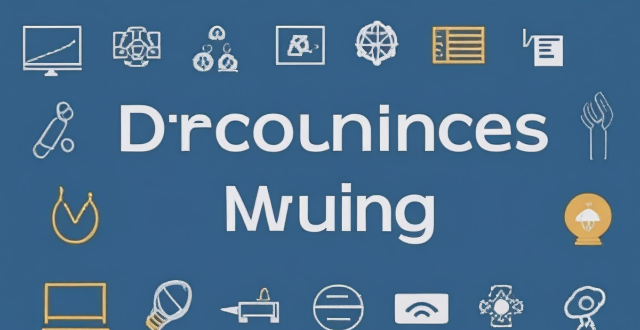
What is the difference between collaborative work and collusion in terms of academic integrity ?
The text discusses the differences between collaborative work and collusion in academic settings. Collaborative work is defined as a transparent process where individuals share ideas, resources, and skills for a common goal, distributing credit fairly and adhering to ethical standards. In contrast, collusion involves deceitful actions like plagiarism or falsifying data, aiming for unfair advantage and often resulting in severe penalties and reputational damage. The distinction is crucial for maintaining academic integrity and promoting an environment of honesty and transparency.

What is academic integrity ?
Academic integrity is a fundamental principle governing the conduct of research, teaching, and learning in academic institutions. It encompasses values and ethical standards promoting honesty, fairness, respect, and responsibility among students, educators, and researchers. The goal is to maintain trustworthiness and credibility by adhering to high ethical standards. Core values include honesty, fairness, respect, and responsibility. Key aspects are avoiding plagiarism, fabrication, cheating, multiple submissions, and collusion. Violating academic integrity can lead to loss of reputation, disciplinary action, legal consequences, diminished career prospects, and ethical implications. Adhering to academic integrity promotes a fair and just academic environment.

What are the consequences of violating academic integrity principles ?
Violating academic integrity principles can lead to serious consequences on both individual and institutional levels, including academic penalties, damage to reputation, difficulty gaining acceptance into programs or securing employment, emotional distress, and potential loss of accreditation for institutions. It is essential for students to understand the importance of maintaining academic integrity to protect their personal and professional futures, as well as the reputation of their educational institutions.

What are the long-term effects of breaches in academic integrity on one's career ?
The long-term effects of breaches in academic integrity can be severe and far-reaching, including damaged reputation, limited career opportunities, and potential legal consequences. It is essential for students, researchers, and educators to uphold the principles of academic integrity to ensure the success of their careers and the integrity of their respective fields.
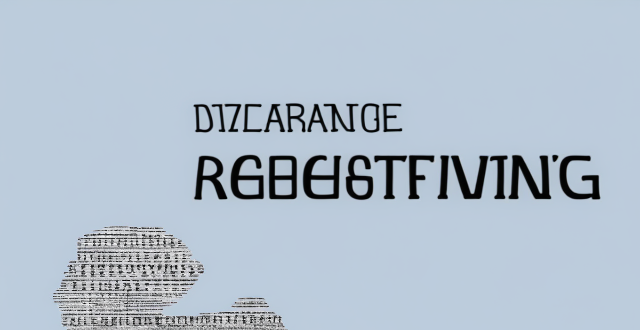
How can students maintain academic integrity in their studies ?
The text discusses the importance of maintaining academic integrity in education and outlines several ways for students to do so. It emphasizes understanding the concept of academic integrity, adhering to school policies, citing sources properly, avoiding plagiarism, being honest in assessments, respecting intellectual property rights, maintaining confidentiality, reporting incidents of misconduct, and seeking help when needed. The text concludes that maintaining academic integrity is crucial for students to achieve success in their academic pursuits and beyond.

Are there any cultural differences in perceptions of academic integrity ?
The perception of academic integrity can vary across cultures due to differences in values, beliefs, and practices. In individualistic cultures, academic integrity is often viewed as an individual responsibility, while collectivist cultures place more emphasis on group harmony and cooperation. Power distance can also influence perceptions of academic integrity, with high power distance cultures being more reluctant to report instances of academic dishonesty. The concept of time can also play a role, with monochronic cultures prioritizing efficiency over quality, while polychronic cultures focus on building relationships. Attitudes towards rules and regulations can also vary across cultures, with rule-based cultures viewing academic integrity as a set of strict rules, while relation-based cultures view it as something that depends on the relationship between individuals. Understanding these cultural differences can help educators design effective strategies to promote academic integrity among diverse student populations.
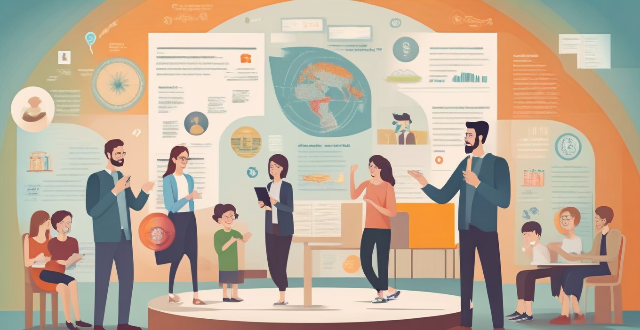
How has the COVID-19 pandemic affected issues of academic integrity, especially with online learning ?
The COVID-19 pandemic has significantly impacted academic integrity in the education sector, particularly due to the shift to online learning. The increased opportunities for cheating during online examinations and plagiarism are major concerns. Difficulty in maintaining academic integrity standards, potential for misunderstandings and miscommunications, and strategies to address these challenges are also discussed.
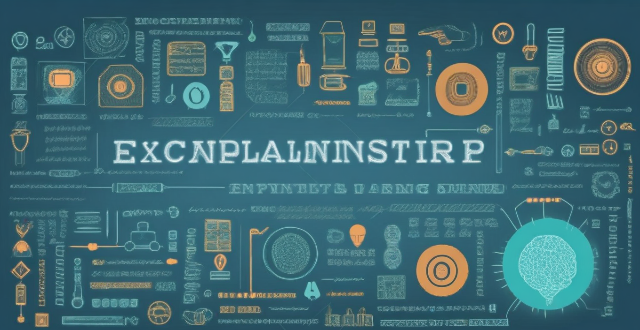
How does academic integrity relate to the concept of intellectual property ?
The text explores the relationship between academic integrity and intellectual property. It defines academic integrity as the core values of scholarly work, including honesty, trust, fairness, respect, and responsibility, which are essential in research, teaching, and publishing. Intellectual property, on the other hand, refers to legal protections that give creators exclusive control over the use of their creations of the mind. The intersection of these two concepts is discussed in terms of respect for original work, protection of ideas, promotion of innovation, and ethical considerations. Both academic integrity and intellectual property laws stress the importance of respecting original work and protecting ideas. They also promote open access and sharing of knowledge while ensuring responsible conduct of research. The text concludes that upholding academic integrity contributes to a robust system of intellectual property that benefits society as a whole.

What is the role of peer pressure in maintaining or undermining academic integrity ?
Academic integrity is a commitment to honesty, trust, fairness, respect, and responsibility. Peer pressure can play a positive role in maintaining academic integrity by encouraging ethical behavior, promoting collaborative learning, and providing support and encouragement for students. However, peer pressure can also undermine academic integrity by promoting cheating and plagiarism, disrupting collaborative learning environments, and stigmatizing help-seeking behavior. It is essential to recognize the potential impact of peer pressure on academic integrity and work to foster an environment that supports ethical behavior and discourages cheating and plagiarism.
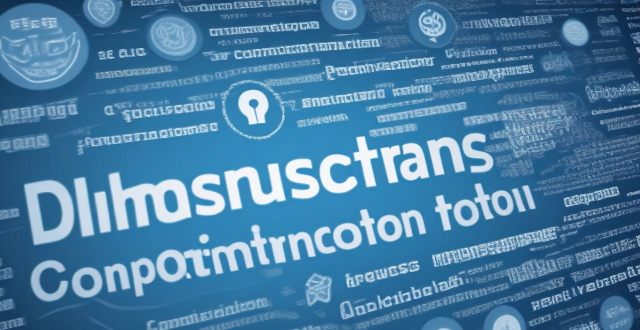
How do communication protocols ensure data integrity and security during transmission ?
The text discusses the role of communication protocols in ensuring data integrity and security during transmission. It outlines mechanisms such as checksums, sequence numbers, acknowledgments for maintaining data integrity, and encryption, authentication, and secure protocols for ensuring data security. The article emphasizes that adhering to these rules allows devices to communicate reliably and securely over networks.
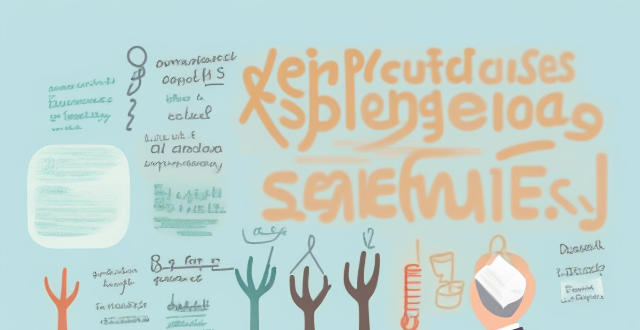
How can students with English as a second language be supported in understanding and applying academic integrity standards ?
The text discusses the importance of supporting students with English as a second language (ESL) in understanding and applying academic integrity standards. It outlines four key strategies for doing so: providing clear explanations, accessible resources, open communication, and extra support. Clear explanations should cover what constitutes academic dishonesty, the consequences of violations, and how to avoid dishonesty. Accessible resources such as glossaries, guides, and videos can help ESL students understand these concepts better. Encouraging open communication between students and instructors can address concerns and questions about academic integrity. Providing extra support through tutoring services, workshops, and peer mentoring programs can further assist ESL students in adhering to academic integrity standards.

Can nutrition affect an athlete's skill level ?
Nutrition is vital for athletes' overall well-being and performance, including skill enhancement, recovery, and injury prevention. It affects cognitive function, physical performance, and recovery, ultimately influencing an athlete's skill level. A balanced diet with proper nutrients can help athletes reach their full potential and succeed in their sports.

Can playing multiple sports help in skill development ?
Participation in multiple sports can enhance overall athleticism and skill development by improving physical attributes, reducing injury risk, developing transferable skills, and promoting mental toughness. It also offers social benefits such as expanded networks and increased opportunities for exposure. While specialization has its advantages, playing multiple sports can help athletes become well-rounded competitors.

How important is rest and recovery in skill enhancement ?
The text discusses the importance of rest and recovery in the process of skill enhancement. It highlights the cognitive and physical benefits of taking breaks, such as improved mental clarity, memory consolidation, muscle recovery, and injury prevention. The practical implications include avoiding burnout, enhancing performance, and strategies for incorporating rest into practice schedules. Overall, the text emphasizes that rest is a crucial component of long-term skill development and should be given equal consideration alongside deliberate practice and training regimens.

How can team sports help in individual skill development ?
Team sports contribute significantly to individual skill development by improving communication skills, enhancing leadership abilities, increasing self-confidence, bettering time management, improving social skills, promoting physical fitness and coordination, providing opportunities to learn from mistakes, and fostering adaptability.

How do I choose a tennis training camp that fits my skill level ?
Choosing a tennis training camp that fits your skill level can significantly improve your game. Here are some tips on how to select the right camp: 1. Assess your current skill level by considering your experience, strengths and weaknesses, and fitness level. 2. Research different camps that offer programs specifically designed for your skill level using online directories, social media groups, and reviews from previous attendees. 3. Check the coaches' qualifications and experience, including their credentials, coaching philosophy, and track record of working with players at your skill level. 4. Consider the quality of the camp's facilities and amenities, such as well-maintained courts, access to equipment, and onsite amenities like locker rooms and dining areas. 5. Evaluate the camp's reputation and success rate by reading reviews, asking for referrals, and contacting the camp directly to learn more about their success stories.
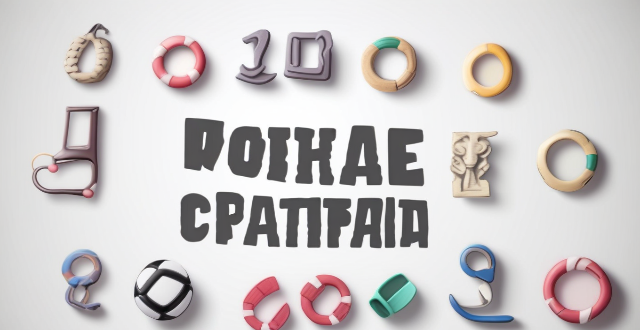
What is the impact of cheating on the integrity of sports competitions ?
Cheating in sports competitions has a profound impact on the integrity of the games. It undermines the fairness and equality that are fundamental to the spirit of competition. The various ways in which cheating affects the integrity of sports competitions include loss of trust and credibility, unfair advantage for cheating athletes or teams, harm to clean athletes, negative impact on young athletes, and damage to the reputation of the sport. To preserve the spirit of competition and ensure fair play, it is crucial for sports organizations, athletes, coaches, and fans to work together to prevent and address cheating in sports competitions.

Is speed reading a natural ability or a skill that can be learned ?
Speed reading is a topic of interest for many individuals who wish to improve their reading efficiency and comprehension. The question arises whether speed reading is a natural ability that some people possess, or if it is a skill that can be learned and developed through practice and training. While there may be some individuals who possess a natural ability for speed reading, it is generally accepted that speed reading is a skill that can be learned and improved upon through practice and training. By employing specific techniques and strategies, anyone can enhance their reading speed and comprehension, ultimately increasing their productivity and knowledge acquisition.

Why is academic integrity important in education ?
Academic integrity is crucial in education as it promotes honesty, builds trust, ensures fairness, cultivates respect, and develops responsibility. It prevents damage to reputation and erosion of confidence in research, while also ensuring actual learning outcomes. Educators must reinforce these principles to create a culture that values honesty and excellence in scholarship.
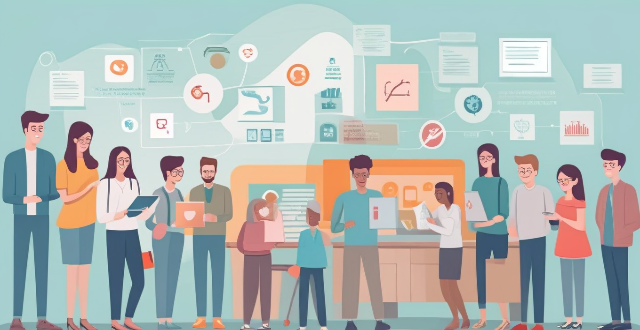
How can schools address the issue of contract cheating, where students pay others to complete their assignments or exams ?
Addressing contract cheating in schools is crucial for maintaining academic integrity. Effective measures include using advanced plagiarism detection tools, educating students on academic integrity, encouraging open discussions, providing support services, and collaborating with parents and guardians. These strategies can deter students from engaging in contract cheating and promote a culture of original work.
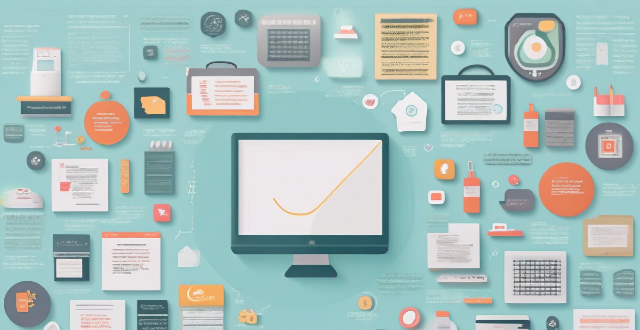
How does technology impact academic integrity, particularly regarding plagiarism ?
Technology has significantly impacted academic integrity and plagiarism in the educational world. The rise of plagiarism detection software has increased awareness and improved the quality of student work but may also lead to false positives and overreliance on technology. Evolution of writing and research tools makes information more accessible yet poses risks like plagiarism opportunities and lack of critical thinking. Social media and collaborative platforms facilitate collaboration and networking but can also contribute to plagiarism risks and distractions. It is crucial for educators to promote ethical practices while leveraging technology's benefits for learning and collaboration.

How do sports help in building character and personal growth ?
The text discusses the various ways in which sports can contribute to building character and promoting personal development. It highlights how sports can help develop discipline, promote teamwork, cultivate perseverance, encourage leadership, enhance self-esteem, teach adherence to rules, facilitate social interaction, improve physical health, and teach individuals how to handle pressure. The author emphasizes that the lessons learned through sports participation can translate into valuable life skills that are essential for success both in sports and beyond. Overall, the text suggests that sports offer an array of benefits that stretch far beyond physical fitness and play a significant role in shaping character and fostering personal growth.
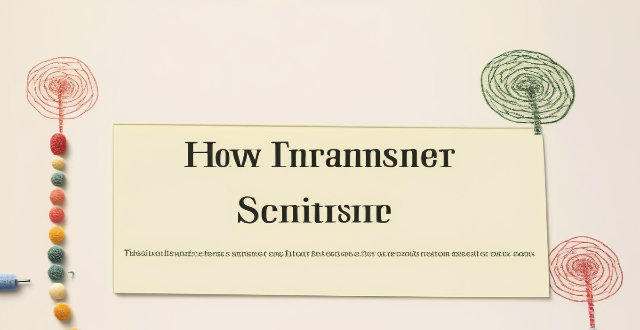
How do we ensure that climate decisions are based on sound science ?
The text discusses how to ensure that climate decisions are based on sound science. It suggests a multi-faceted approach that includes ensuring data quality and integrity, promoting interdisciplinary collaboration, and enhancing public understanding and involvement. The author emphasizes the importance of rigorous research, maintaining data integrity, encouraging collaboration between different fields, integrating traditional knowledge and local expertise, educating the public about climate science, and encouraging public participation in decision-making processes. By adopting these strategies, we can make informed decisions that effectively address the challenges posed by climate change.
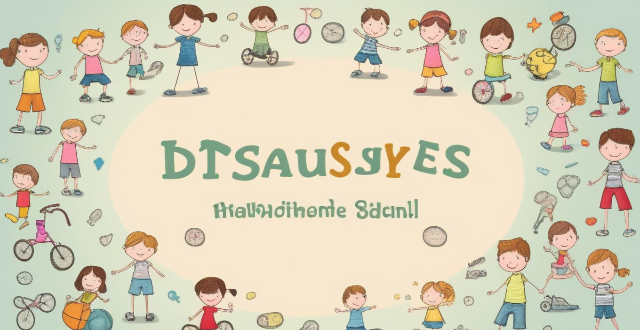
What role do sports play in character building for children ?
The article discusses the various ways in which sports contribute to the overall personality development of children. Sports ensure physical health and well-being, teach valuable life skills such as teamwork, leadership, communication, and goal setting, impact emotional development by boosting self-esteem, teaching resilience, and handling pressure, provide opportunities for socialization, and play a crucial role in moral development by instilling values such as integrity, respect, and responsibility. The author concludes that sports are not just about physical fitness but are powerful tools for character building in children.
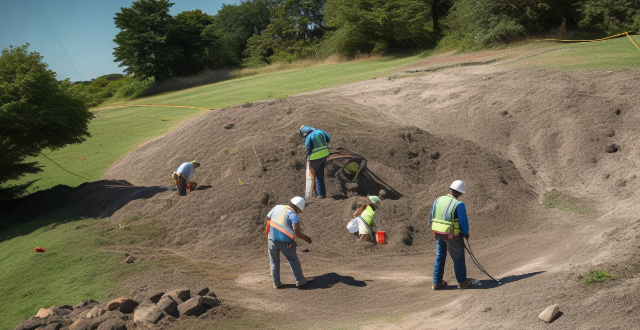
Is it safer to stay in a high-rise building during an earthquake or evacuate ?
The article discusses the safety considerations for staying in or evacuating a high-rise building during an earthquake. It outlines the advantages and disadvantages of both options, such as structural integrity, risk of falling debris, and access to emergency services. The decision should be based on factors like the severity of the earthquake, the building's structural integrity, and available safety precautions. Being prepared with an emergency kit and knowledge of proper safety procedures is crucial for ensuring well-being during these events.

How does team sports contribute to personal growth and development ?
Team sports contribute significantly to personal growth and development by helping individuals develop various skills, qualities, and values essential for success in all aspects of life. These include communication skills, leadership abilities, teamwork and collaboration, discipline and responsibility, goal setting and achievement, emotional intelligence, and time management. Participating in team sports can help individuals become well-rounded individuals who are prepared for whatever challenges lie ahead.
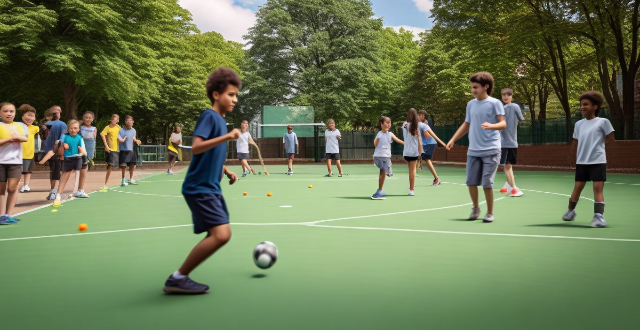
Why is it important for schools to prioritize sports education in their curriculum ?
Sports education is crucial for a student's overall development, promoting physical fitness and life skills. It improves physical health, motor skills, mental well-being, social skills, and academic performance. By prioritizing sports education, schools can create well-rounded individuals prepared for success in all aspects of life.

Are tennis training camps effective for children and teenagers ?
Tennis training camps can be an effective way for children and teenagers to improve their skills and develop a love for the sport, depending on factors such as quality of instruction, level of commitment, and overall environment. Benefits include skill development, learning new techniques, building confidence, and socializing with other young players.
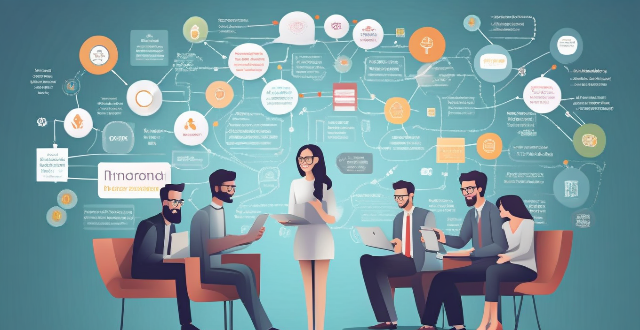
What are the pros and cons of using social media in education ?
The article discusses the advantages and disadvantages of using social media in education. Advantages include enhanced communication, collaboration and networking, access to diverse information, skill development, and flexible learning. Disadvantages are distractions and time management, privacy concerns, misinformation, academic integrity issues, equity concerns, and teaching challenges. The conclusion states that careful consideration and strategic implementation are key to harnessing the benefits of social media in education while minimizing its drawbacks.